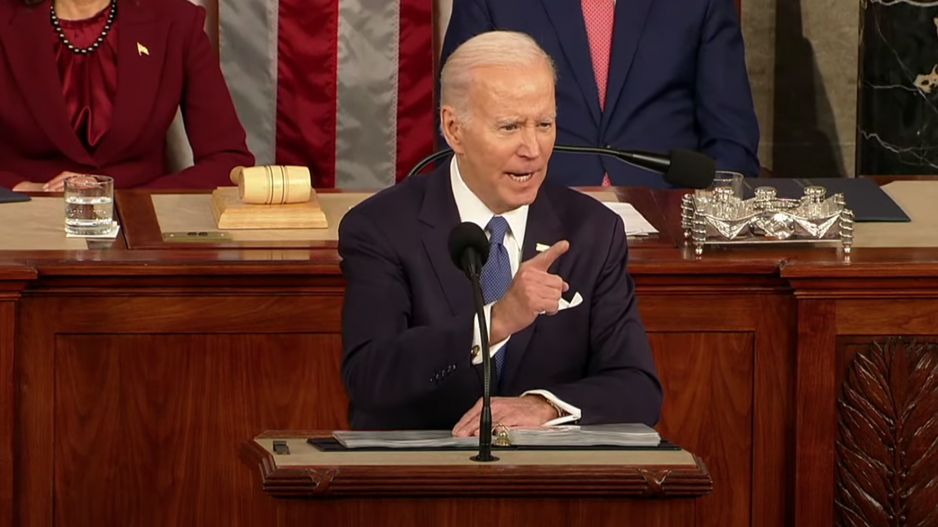American President Biden came to Ottawa at the end of last week to meet with Prime Minister Justin Trudeau. Like any world leader, he came to discuss some issues openly and other issues behind closed doors.
The open words were delivered in a speech Biden made to Canada’s Parliament. The messaging was geo-political and a world war theme was woven in the key issues of Russia, China, military defence and secure supply chains.
Biden’s most important message was this - the United States is at an inflection point. It is leaving one path suddenly – “rapidly” was Biden’s word - and is veering down a different path.
Biden didn’t say what path the United States was leaving nor the new one it is now veering down, but it can be inferred that it is a path of an exclusive alliance of select countries. Biden wants Canada to inflect, too – to go traveling down the same road, hand-in-hand, with the United States.
Before we get warm and fuzzy about Biden’s plans for togetherness, the last time world leaders gave speeches about world wars, it was World War II. One of the last significant war speeches at the time was delivered by President Franklin D. Roosevelt on March 1, 1945. It was FDR’s last speech before he died. He addressed the American people in the U.S. Congress and, like Biden, he talked about Russia, war and peace.
What FDR said to America is relevant to what Biden said in Ottawa.
FDR told the American people that he had convened a conference in Crimea with, among others, Russian leader Joseph Stalin. Faced with the ugliness of war, their goal was to build the foundation for an international accord that would bring order, security and lasting peace to the world. They argued freely and frankly for days, he said, until they reached unanimous agreement. “The United States will not always have its way, 100%,” FDR said, but “nor will Russia.”
They agreed to end the system of exclusive alliances among nations that have, FDR said, “been tried for centuries and have always failed”, and to replace it with a club everyone was welcome to join – an organization of united nations.
Three months later, on June 26, 1945, at the invitation of China, Russia, the US, and the UK, the UN conference took place to create the United Nations charter.
The Crimea Conference in 1945 marked an inflection point, too, for the whole world.
Why?
Because, as FDR explained, henceforth either we (me and you), take responsibility for world peace and collaboration, or we (me and you), will bear the responsibility for another world conflict.
Fast forward 78 years.
Today, politicians use phrases such as “friend-shoring,” “de-coupling from X, Y or Z nation,” and “secure supply chains” to refer to the exclusive alliances of the 1930s that FDR tried to rid the world of. These modern phrases are meant to encourage us (me and you), into thinking that there are bad countries filled with bad people and good countries filled with only good people.
There are not. There is just one humanity and it is as self-evident as the night follows the day that all of us (me and you, and them), are created equal.
Biden’s togetherness plan underlies the main reason he came to Ottawa – for rare earth elements. China controls the extraction, processing and refining of rare earth elements and is the only country refining heavy rare earths.
The United States needs large amounts of rare earths to maintain and build up its military equipment and weaponry, including in hypersonic weapon capability.
It also needs (in fact the whole world needs), large quantities of rare earth elements for the transition to net zero to address climate threats, and for our technology advancement.
With the exclusive alliance system creeping back into play, the United States urgently needs rare earth elements from a new supplier – Canada.
Canada has an abundance of unextracted rare earths terrestrially and critical minerals in our EEZ (exclusive economic zone) off British Columbia, but we’re known for being a commerce-killer because it takes over a decade for a mine to obtain approval for mineral extraction.
The United States can’t wait that long and is willing to pay us to move things forward.
Biden’s ask of Canada, in a nutshell, is to become the American supplier of rare earth elements because of their inflection point. Of course, we ought to agree, but we ought to do so with that other inflection point, the one from FDR, in mind.
You see, if we (me and you), don’t inflect and we stay on the path of world peace, and rather than friend-shoring, or exclusively aligning with a handful of countries, we live up to the ideals born with the establishment of the United Nations, and shore our ships with everyone, we can become a global supplier to the whole world of rare earth elements, critical minerals, oil and gas, and agricultural products and build bridges across the world, becoming an even greater country that is free, secure, open and prosperous.
Christine Duhaime is a financial crime expert with Fusion Intelligence.




